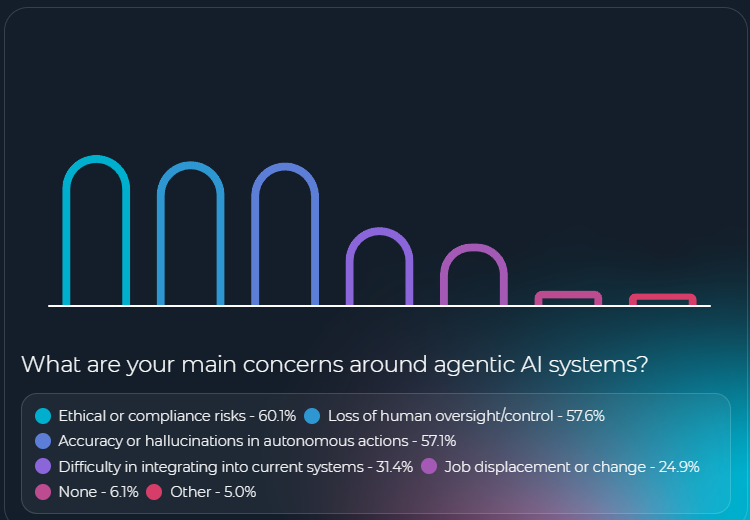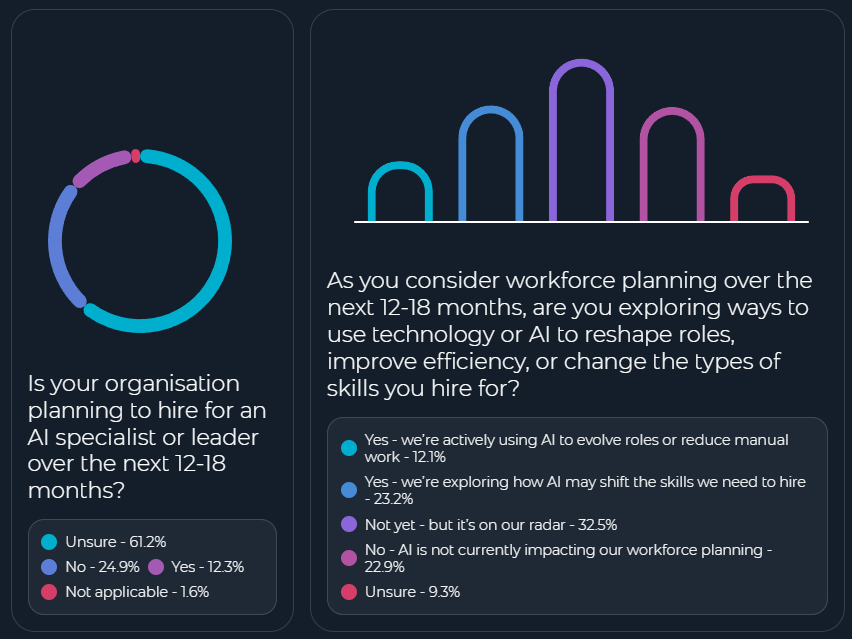A quarter of workers across Australia and New Zealand are concerned that agentic AI systems may displace their jobs, according to new research from recruitment firm Talent.
The findings come from Talent’s latest AI survey, which gathered responses from over 850 business leaders and technology professionals across a range of industries. While 90% of business leaders believe AI will improve team productivity within two years, only 63% of workers share the same optimism.
Despite widespread anticipation of AI’s benefits, only 12% of organisations plan to hire an AI specialist or leader within the next 12–18 months. Additionally, 55% of companies said AI has not yet influenced their workforce planning.
Talent’s Managing Director NSW, Matthew Munson, said the data reflects a gap between strategic ambition and operational execution. “AI is reshaping how businesses and individuals approach work, but our latest survey shows there’s still a cautious optimism in the market,” said Munson. “While 90% of leaders see AI’s positive impact, only a small number are actively hiring AI specialists. This gap highlights the opportunity, and urgency, for organisations to build stronger AI capabilities otherwise risk being left behind.”
Security and compliance risks remain a key obstacle to broader adoption, cited by 46% of respondents. Meanwhile, 52% of organisations have introduced AI-related training or upskilling.
Jack Jorgensen, Practice Lead – AI, Data & Innovation at Avec, noted that scaling AI solutions often brings hidden costs and challenges. “Implementation of large-scale AI projects can necessitate the storage of enormous volumes of data, which in turn requires fast and reliable access,” he said. “Cloud storage, while convenient, comes with substantial costs which may not be considered in this regard. There are also security considerations evolving at an accelerated pace.”
The report categorised insights into six themes: Perception, Current Use & Adoption, Strategy & Leadership, Skills & Enablement, Barriers & Challenges, and Agentic AI.



